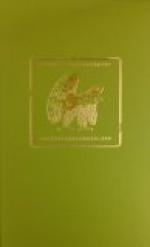Tisdale shook his head. “No, it was before that; the year I gave up Government work to have my little fling at prospecting. You were still in college. Every one was looking for a quick route to the Klondike then, and I believed if I could push through the Coast Range from Yakutat Bay to the valley of the Alsek, it would be smooth going straight to the Yukon. An old Indian I talked with at the mission told me he had made it once on a hunting trip, and Weatherbee—you all remember David Weatherbee—was eager to try it with me. The Tlinket helped us with the outfit, canoeing around the bay and up into the Arm to his starting point across Nunatak glacier. But it took all three of us seventy-two days to pack the year’s supplies over the ice. We tramped back and forth in stages, twelve hundred miles. We hadn’t been able to get dogs, and in the end, when winter overtook us in the, mountains, we cached the outfit and came out.”
“And never went back.” Banks laughed, a shrill, mirthless laugh, and added in a higher key: “Lost a whole year and—the outfit.”
Tisdale nodded slowly. “All we gained was experience. We had plenty of that to invest the next venture over the mountains from Prince William Sound. But—do you know?—I always liked that little canoe trip around from Yakutat. I can’t tell you how fine it is in that upper fiord; big peaks and ice walls growing all around. Yes.”—he nodded again, while the genial wrinkles deepened—“I’ve seen mountains grow. We had a shock once that raised the coast-line forty-five feet. And another time, while we were going back to the village for a load, a small glacier in a hanging valley high up, perhaps two thousand feet, toppled right out of its cradle into the sea. It stirred things some and noise”—he shook his head with an expressive sound that ended in a hissing whistle. “But it missed the canoe, and the wave it made lifted us and set us safe on top of a little rocky island.” He paused again, laughing softly. “I don’t know how we kept right side up, but we did. Weatherbee was great in an emergency.”
A shadow crossed his face. He looked off to the end of the room.
“I guess you both understood a canoe,” said Banks. His voice was still high-pitched, like that of a man under continued stress, and his eyes burned in his withered, weather-beaten face like the vents of buried fires. “But likely it was then, while you was freighting the outfit around to the glacier, you came across those ptarmigan.”
Tisdale’s glance returned, and the humor played again softly at the corners of his eyes. “I had forgotten about those birds. It was this way. I made the last trip in the canoe alone, for the mail and a small load, principally ammunition and clothing, while Weatherbee and the Tlinket pushed ahead on one of those interminable stages over the glacier. And on the way back, I was caught in fog. It rolled in, layer on layer, while I felt for the landing;




